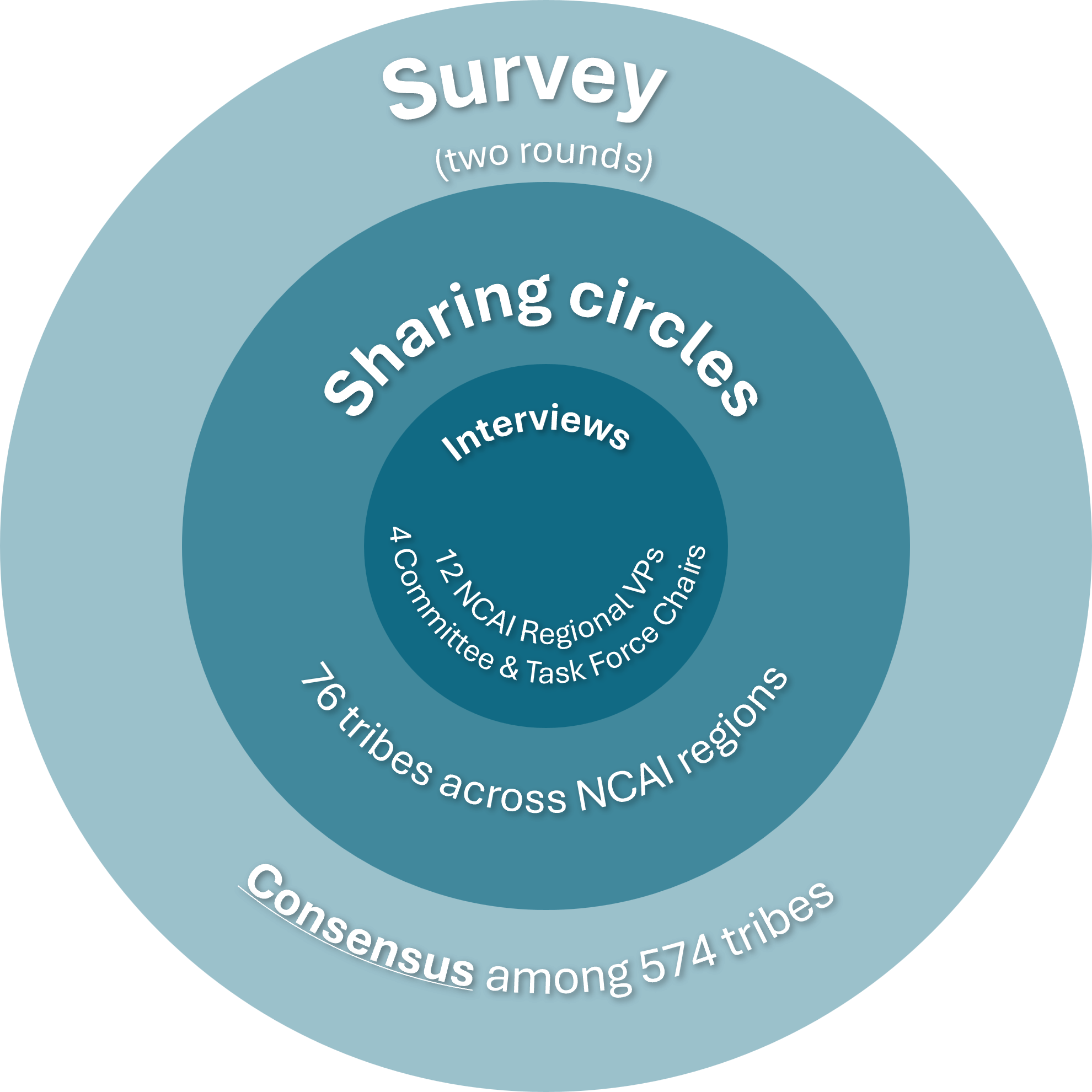Institute for Environmental Sovereignty

Environmental Priorities Across Indian Country Project
The NCAI Institute for Environmental Sovereignty advances Tribal
Nations’ leadership in:
Natural resource governance and environmental stewardship
The safeguarding of Indigenous Peoples’ cultural heritage linked
to the landscape and natural environmentInnovative Indigenous-led approaches to environmental
protection.
What Do We Want To Know?
Tribal Nations’ environmental challenges
Barriers that Tribal Nations face in overcoming these challenges
Existing and potential tribal-led solutions and innovations
Together We Can Accomplish
Evidence-based recommendations for the federal budget
Solid grounds to advocate for policy change advancing Indian Country’s priorities
Drive the Institute’s projects, programs, and activities
Inform and educate federal policymakers and agencies
More targeted support from non-governmental organizations and philanthropy
Project Plan
We will identify tribal environmental priorities in three stages (Figure 1).

Figure 1. Levels of data collection used to determine environmental priorities across Indian Country.
Interviews and sharing circles: These conversations will inform the survey questions.
Survey: Administered in two rounds to reach consensus. In the second round, respondents will see the summarized results from the first round and adjust their responses if needed.
Founded in 1944, the National Congress of American Indians (NCAI) is the oldest, largest, and most representative American Indian and Alaska Native organization serving the broad interests of tribal governments and communities. NCAI, a non-profit organization, advocates for a bright future for generations to come by taking the lead to gain consensus on a constructive and promising vision for Indian Country.
Project Lead
Angela Medina Garcia, PhD,
Senior Research Associate,
NCAI Institute for Environmental Sovereignty
environ-priorities@ncai.org
Dr. Medina Garcia is passionate about environmental protection. She strives to empower Tribal Nations to continue to respectfully steward the land the way that they have for millennia. She earned a National Science Foundation Postdoctoral Research Fellowship in Biology, a Ph.D. in Biology from New Mexico State University and received a M.Sc. in Biology from Bowling Green State University.
This project is supported by the NCAI Foundation
